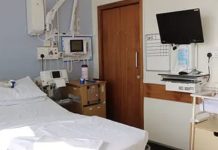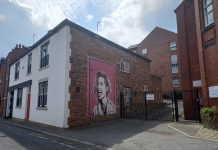Experts have found that people involved in County Lines drug supply networks — where drugs are transported from one area to another, often across police and local authority boundaries, usually by children or vulnerable people who are coerced and controlled by gangs — have been attempting to use disguises and adapting their tactics to evade detection by authorities during the UK’s national lockdowns.
In an ongoing study by the University of Nottingham’s Rights Lab, the researchers report that County Lines actors had worn uniforms, which included that of delivery service drivers, supermarket staff, healthcare workers and builders, to try to appear to be travelling legitimately during lockdown.
In their latest interim report, the Rights Lab found that Covid-19 rules, such as wearing face masks, worked to the advantage of County Lines gangs, making it more difficult for law enforcement to identify known criminals, providing them with a greater level of protection and anonymity.
However, the experts found that some aspects of Covid-19 proved beneficial to police. Less people using public transport made it easier for British Transport Police to spot young people using the rail system, enabling them to stop and question their reasons for travel. Successful interceptions provided opportunities to apply safeguarding measures to young people suspected of being exploited.
The successful efforts of British Transport Police saw some drug dealers move away from travelling by train and onto the roads, particularly through the use of private hire vehicles – a positive outcome, the police say, as tactics that can be deployed on the road significantly increase, with better intelligence leads such as vehicle registration numbers and driver’s licences.
The experts observed that there was not a ‘one size fits all’ to the behaviour of County Lines gangs across the nation. As reported previously, with cuckooed properties easier to detect during national lockdown, some regions saw an increase in ‘day-tripping’ by drug supply lines rather than establishing a local supply base.
In the North West of England, there was intelligence to suggest that some County Lines networks were reluctant to travel due to the restrictions and added risks, instead requesting drug users and commuters travel to them to collect drugs. In one part of England, police documented inconspicuous methods of transport including the use of canal barges to traffic drugs along waterways, while the use of drones was reported in another.
With the closure of importation routes and difficulty in accessing supply, there had been initial speculation that the street-level price of Class A drugs would rise but, researchers found that instead, fluctuations were felt at the wholesale level. The price of cocaine and heroin was estimated to have risen by up to £10,000 per kilo, with reports that those buying drugs in bulk circumvented price increases by increasing the use of adulterants, impacting upon the purity of crack cocaine and heroin received by users.
In their report, the researchers speculate that the successes of Operation Venetic—the UK’s arm of the international police operation behind the EncroChat investigations, which saw the arrests of upwards of 746 criminals during the first national lockdown —may have had an impact on the availability, and therefore the price, of heroin and crack cocaine.
Dr Ben Brewster, who is leading the UKRI-funded investigation, said: “Despite successes in some areas, the pandemic continues to pose challenges for police, who have to adapt to the evolving methods and tactics of County Lines dealers.
The report raises concerns that social media platforms such as Snapchat and Instagram are increasingly being referenced as important in the early stages of grooming. Yet, the methods of contact, and the imagery and content used to lure potential victims is lesser understood and remains a significant knowledge gap. They say that peer recruitment remains key in the referrals of other young people to perpetrators, and the ease at which County Lines networks are able to infiltrate friendship groups is an ongoing concern and knowledge gap.
The researchers report that police highlighted the constraints the pandemic imposed on their ability to effectively safeguard young people. Doorstep interaction impeded engagement and meant that sensitive issues such as drug use could not be properly addressed. There were also concerns about the reduced level of information fed into the police about at-risk young people from schools and other agencies, with one force reporting a 30% drop in referrals.







